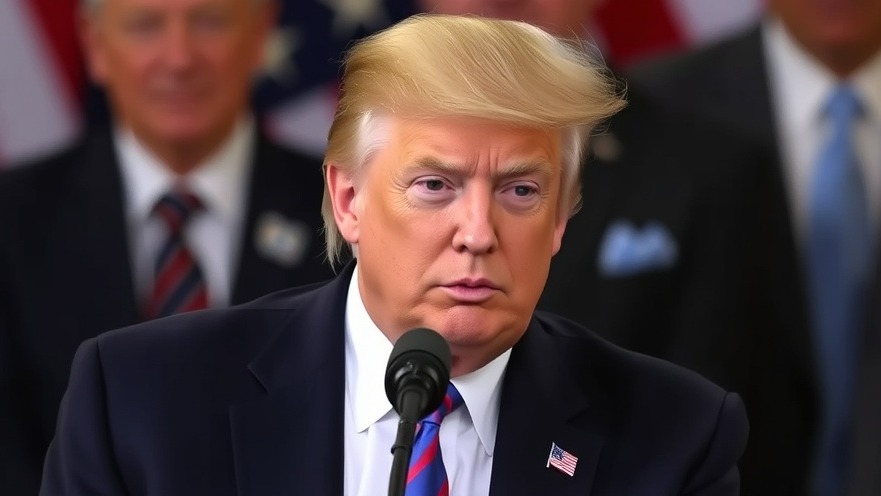
The Deteriorating Health of Leadership: What It Means for America
Amid the bustling noise of U.S. politics, alarming discussions about President Donald Trump’s cognitive health have emerged, drawing attention from both political insiders and healthcare professionals. In an interview with Times Radio, Rick Wilson, a notable Republican strategist, raised concerns that Trump’s “accelerating cognitive decline” may hinder his ability to serve a second term effectively. Notably, Wilson described Trump as ‘incoherent,’ pointing to his struggles with speech and coherence as indications of a person unfit for the daunting responsibilities of the presidency.
Navigating Concerns of Cognitive Decline
The issue at hand presents not just a personal concern but raises questions about leadership credibility in the healthcare community. The argument posed by Wilson, while reflective of a growing apprehension regarding Trump's health, highlights a dual narrative in political discourse: the prioritization of candidate health amidst a backdrop of national concern for mental wellness. Conscientious medical professionals within the concierge medicine community understand that mental acuity and physical well-being are paramount for effective leadership and patient care. This parallel is crucial, as it emphasizes the importance of health in decisions that affect an entire nation.
The Impact on Public Perception and Patient Care
Patient perception of leadership can greatly affect how they value and trust healthcare delivery systems. Trump squarely embodies the archetype of a leader shaped by intricate health debates, leaving individuals to wonder how a decline in mental faculties could translate to governance efficiency. In light of this, a concierge medical practice can take insightful cues from this dilemma. Prioritizing patient communication and maintaining transparency can significantly solidify trusting relationships. Clients today want to connect with their healthcare providers, emphasizing understanding, empathy, and clarity in decision-making and care strategies.
Contrasting Narratives: Political Health vs. Personal Health
Wilson's analysis of Trump is further complicated by contrasting narratives, namely other political figures facing similar scrutiny. Reports of former President Joe Biden’s cognitive challenges add another layer to the conversation. This increasing trend of focusing on political figures' health fosters anxiousness among voters. For medical practices, unfair reputational risks may arise, particularly if public opinions lean toward skepticism about healthcare efficacy based on their leaders. This necessitates proactive health communications in practices to diffuse anxiety and reinforce patient trust.
Strategies for Concierge Medical Practices
Amidst the shadows of political discourse, concierge medical practices hold the potential to foster and reshape the dynamics of patient-care conversations. Here are actionable insights for medical concierge providers to navigate these complexities:
Foster Open Communication: Develop platforms where patients feel engendered to ask questions and voice concerns regarding health. This builds rapport and diminishes fears shaped by external narratives.
Educational Workshops: Create initiatives focusing on mental health literacy, nutrition, and wellness strategies. Educated patients are empowered patients, likely to make informed decisions.
Observe Trends: Stay abreast of political discourse and its impact on public health opinions. Understanding cultural sentiment plays a crucial role in response strategies.
Call to Action: Engage with Your Patients
As wellness leaders within your communities, it’s vital to pay close attention to the implications of leadership health on your practice. Ramp up your engagement efforts—whether through informative newsletters, interactive health sessions, or community involvement. By positioning your practice as a source of reliable information and support, you reinforce the patient-led approach that is essential in today’s healthcare landscape.
 Add Row
Add Row  Add
Add 






Write A Comment